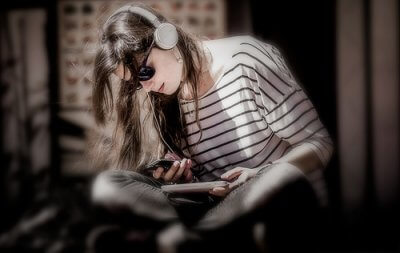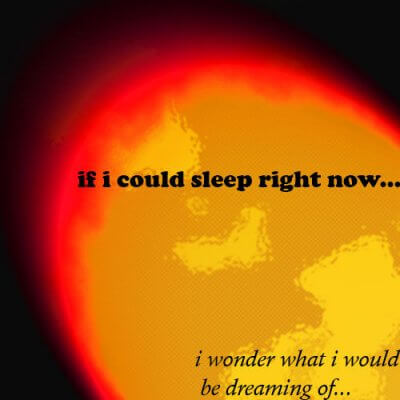Is Too Much Screen Time Really a Big Deal? (Read if You Are Depressed)

By: Serge Seva
by Andrea M. Darcy
How much screen time is too much screen time?
Here in the UK, Ofcom found that by the age of four the average kid is spending three hours a day in front of a screen. If you are a teenager, that rises to almost seven hours daily.
How scared should you be about your screen time?
Reading popular articles about the effects of screens on your health is enough to give anyone an anxiety attack. While it has been found that using screens to learn can be beneficial, it’s when screens are used for entertainment or distraction that things gets worrisome.
Here are some talked about statistics:
- a 2015 Canadian study found that 75% of teachers feel that students’ ability to focus is dropping, plus students were not as good as being resilient and were also less empathetic
- Harvard university reminded us that screen time was making us obese
- a 2015 Cambridge study declared that just an hour more entertainment screen time a day than other students leaves you to have a GCSE result that is a total of nine points worse
- Chinese researchers started throwing around the term ‘digital heroin’.
Sound like scare tactics to you? Scientists in America and the UK protested just that (read an open letter from UK scientists here).
They argued that the very concept of ‘screen time’ is too vague. It overlooks the differences of content and context (how devices are being used).
Plus, many of the studies ‘proving’ the danger of screen time are done only using surveys, usually with small control groups. So better research needs to be done before big conclusions are made.
But before you decide not to worry about your screen use, it pays to look at the neuroscience around screen time, and the ways that too much screen time affects your mental health.
The real downsides of too much screen time
So what does science actually prove as downsides? And how do they lead right to depression, anxiety, and other psychological problems?
1.Your sleep suffers.

By: xnot
There are two big ways screens work to kill your sleep. The most worrisome is that digital devices use short wavelengths of light. And this ‘blue light’ affects the way your brain creates the chemical it needs to sleep, melatonin.
The other idea is that what we see on our phones, iPads or computers at nighttime tends to be too stimulating. A flirtatious text, an exciting movie… they are revving up your brain, not relaxing it.
Sleep problems alone could account for all the side effects of screens that popular studies go on about. Not sleeping well means you can’t think straight, struggle with stress, and can be edgy with others (it’s hard to be nice when you are exhausted).
And you guessed it – sleep problems and depression are directly related.
2. Screen time rewires your brain.
Here’s what is truly scary about screen time. Scientists are sure that it is rewiring our brains in all sorts of ways. They just don’t know the full picture yet, or what the long-term results will be. So yes, we are all basically rats in a giant global lab at this point.
Don’t believe it? This 2014 study found that simply playing something as basic as Super Mario for half an hour a day over two months significantly changed grey matter. Yes, these researchers suggest this could be positive, and a way to help those with PTSD and schizophrenia. But God knows what virtual reality does in there…
3. There is a chance of addiction.
The research so far is mostly done on rats, and so far in humans the statistics aren’t high. But the risk is real.
The idea is that excessive stimulation (such as from screens) affects your dopamine levels. Dopamine is the ‘reward chemical’ of your brain. If it’s firing out too much, you can become addicted to it, and increasingly need the activity that gives you the ‘hit’.
And if you are still young, this can mean your brain circuits become permanently wired in a way that sees you grow up into an addiction-prone adult with ADHD-like traits. Which again sees you more likely to suffer from anxiety and depression.
How screen time causes depression
Neuroscience aside, there are two crucial psychological reasons too much screen time links to depression.
- screen time lowers time spent connecting with others
- we can use screen time to avoid ourselves.
Barring the times we pore over social media with our friends, screens tend to be a solo venture. Even if we are watching a movie together, it’s an hour and a half of not communicating. And connection is now seen as the holy grail of good psychological health (read our article on ‘The Importance of Connecting With Others“). A weak social circle is connected to loneliness, anxiety, depression, and even early death.
Screens are also the easiest way to distract ourselves in our modern world. We’ve all done it. I mean who hasn’t had a bad exam result, or a sudden breakup, and found themselves zoning out in front of a TV for hours?
When we constantly avoid our feelings, our repressed emotions build up until they become anxiety or depression. And when we choose distractions over dealing with life we create difficult experiences for ourselves and upset others, again leaving us feeling low.
So the next time you are in front of a screen ask yourself:
- What is my intention here?
- Am I in front of this screen to learn something or connect with a real person, or am I seeking to zone out?
- And if so, what am I hiding from?
- Is there a better way to deal with this?
[Want help with using your devices in healthier ways? Sign up to our blog now for an alert when we post the connected piece on “How to Troubleshoot Your Screen Time”].
What should I do if my screen reliance is connected to depression?
If your devices are triggering or hiding anxiety or depression, it’s important to try to find some sort of support. Is there a trusted friend you can reach out to? Or a school counsellor you can talk to?
If you can find the courage and financing, seeking professional support is a great option. Low budget? Read our article on ‘Finding Low Cost Therapy” for inspiration. If you are a teenager, you might find our article on “How to Talk to Your Parents About Mental Health” a useful read.
Feeling really low, and have nobody to talk to? There are free hotlines in the UK with trained listeners who are happy to help. Some of them even have online chat if talking over the phone feels too scary. Read our article on “Helplines in the UK” for more.
If you worry that you might be suffering from anxiety or depression and would like to work with a counsellor or psychotherapist over online, you might want to check out our new website that connects you to talk therapists all across the UK.
Do you have a question about the dangers of too much screen time? Or about depression and screen time? Post in our public comment box below.






Good day.
My nephew age 16 suffers from depression. He has shown interest in IT career path(digital/multi-media).
I am wondering if this is maybe not the right career path he should be choosing due to his depression.
Please advise me on this issue.
If you want him to follow a career path that would help his depression, then support what brings him joy and makes him feel good about himself and like he has value. If that’s IT or media, what’s a matter with that? The worst thing would be to push him to do something that goes against his values or personality because it seems ‘practical’ or ‘others in his family have followed that path’. Also, if he is 16, he has his life ahead of him. If his first career doesn’t work out then it is still a success as it’s been a chance for him to learn about himself and grow as a person. If the family doesn’t see it like that, if the family is trying to control him and he’s only 16, then that might be part of why he is depressed.